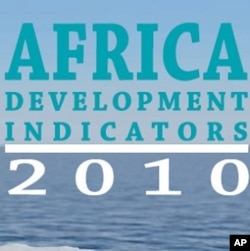The World Bank, in its annual Africa Development Indicators report, says so-called "quiet corruption" is widespread in Africa. The report says the problem of corruption goes beyond bribes and graft and affects health, education, and agriculture.
The World Bank says public servants, in many African countries, are failing to deliver government goods and services to the people they are aimed at.
It says the problem is widespread across Africa and affects poor people most because they rely on government services.
Joel Kibazo, from the London-based research group Chatham House, says "quiet corruption" affects people on a daily basis.
"Of course the big corruption where you take millions or billions is really important - but in some ways that's not what affects everyday people, this does," Kibazon said.
The report highlights how corruption affects agriculture, health, and education.
As an example, it says farmers who have used diluted fertilizers may choose to stop using them altogether - leading to low productivity. Research from the 1990s found 43 percent of analyzed fertilizers sold in West Africa lacked the required nutrients.
And the report says absentee doctors and ineffective drugs means that many people in Africa don't use the health system. In Uganda in 2003, a direct observation survey found the absenteeism rate among health care providers at 33 percent.
In education, says the report, many children are denied a proper education because the teachers themselves don't show up.
Kibazon says this has long-term consequences for the continent.
"One, the child or the children are not educated," Kibazon said. "Secondly, there's a sort of probability of losing interest in education. And then onto that goes the fact that if they lose interest they will leave school without any qualifications and therefore it reduces their ability to serve their country, their economies, and their own families because they have not been educated."
Kibazon says the publication of this report by the World Bank is the first step towards reversing the problem. He says international organizations need to do more to highlight instances of "quiet corruption" and put pressure on African governments to do something about it.
And he says people who experience daily corruption must make sure their voices are heard.
"This is about the people of each country and each society saying, 'we don't want this', and therefore making a call on their own leadership to make a move in eradicating it," Kibazon said.
Along with its study on corruption, the World Bank published its annual collection of data on the continent including over 450 economic and social statistics covering 53 countries.
In Somalia, it says, only 29 percent of the population has access to a safe source of water. In Mauritania it is 100 percent.








